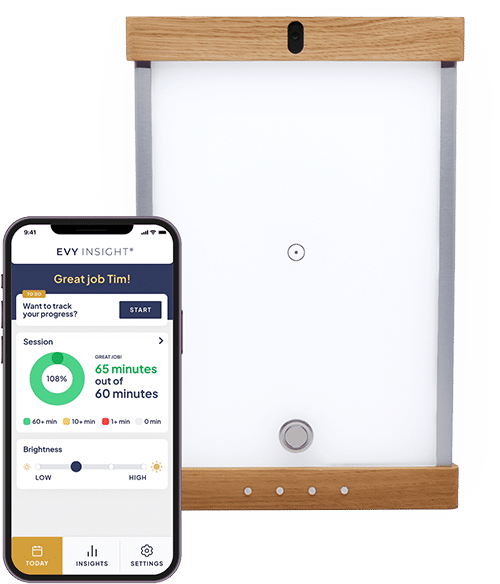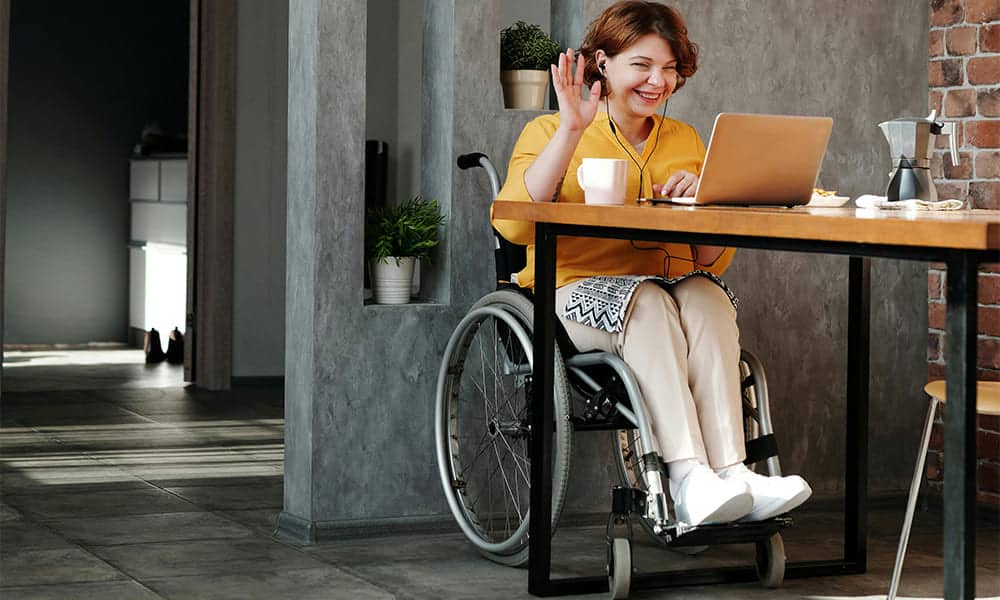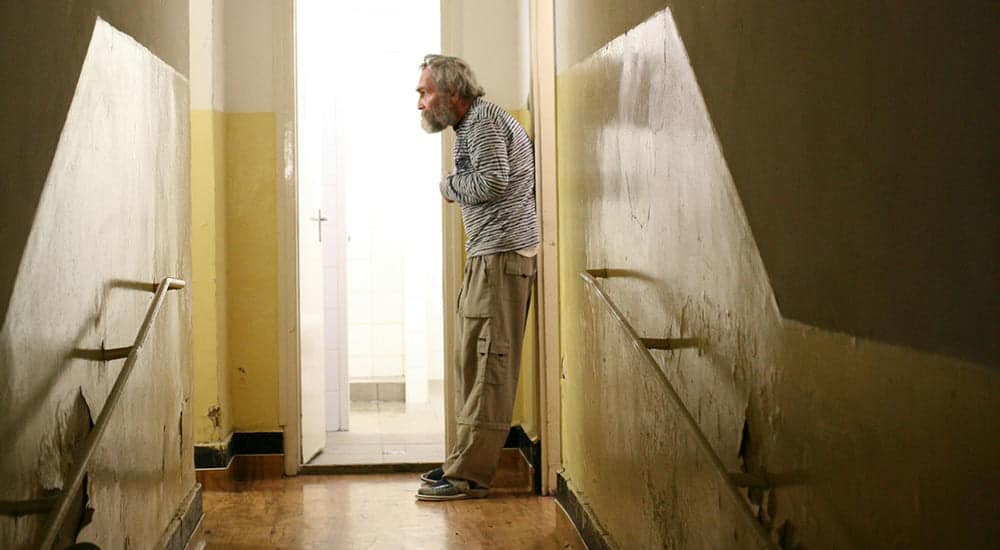Dealing with a loved one diagnosed with Alzheimer’s can be emotionally challenging and overwhelming. This guide offers comprehensive information on the symptoms, caregiving strategies, and legal and financial steps to take to navigate this journey effectively. By understanding the disease and preparing for the challenges ahead, you can provide the best possible care and support for your parents.

Christopher Ravn
Key Takeaways
1. Recognize the early warning signs of Alzheimer's and seek a professional diagnosis to ensure timely intervention and support.
2. Develop a personalized care plan that addresses your parent's physical, emotional, and cognitive needs, including medical management, daily activities, and social engagement.
3. Connect with support groups, healthcare professionals, and community resources to access guidance, emotional support, and practical assistance throughout your caregiving journey.
Table of Contents
1. How Do I Know If My Dad Has Alzheimer’s?
2. What Are The Immediate Steps To Follow If You Know Your Parent Has Dementia
3. What Can I Do To Help My Dad With Dementia
4. Who Is Financially And Legally Responsible For My Father With Alzheimer’s?
5. When Should My Parent With Dementia Move To Assisted Living Or Memory Care?
6. Will I Inherit My Dad’s Dementia Disease?
7. What Day-To-Day Activities Can I Plan For My Parents With Alzheimer’s?
8. Frequently Asked Questions About My Dad Has Alzheimer’s
How Do I Know If My Dad Has Alzheimer’s?
To determine whether your dad is suffering from Alzheimer’s, you should be aware of certain signs and symptoms.
- Forgetting recent conversations, events, names, and even words they used to know.
- Struggling to find the right words to communicate.
- Mood swings and feelings of disorientation.
- Severe memory loss of recent events, faces, and personal history.
- Struggling to speak, read, or write simple language.
- Becomes easily agitated, suspicious, or paranoid.
- Need to be reminded of their daily tasks.
What To Do If You Think Your Parent Has Alzheimer’s?
- Encourage them to meet a neurologist, geriatrician, or dementia specialist.
- Keep a record of their symptoms and share your observations.
- Use phrases like “I” when you are addressing your concern rather than saying “You”.
- It is important to be patient and understanding, and the diagnosis process can be challenging.
- Seek support programs and resources such as counseling and local resources.
What Are The Early Warning Signs To See If My Father Has Alzheimer's?
- Forgetting information or names, dates, or events.
- Unable to find the right words or phrases when speaking.
- Getting lost in places that they are familiar with or unable to tell time or place.
- Struggling to complete daily tasks.
- There are difficulties in identifying appropriate words and comprehending both written and spoken language.
- Difficulty with visual and spatial objects.
- Difficulty with visual and spatial objects.
- Isolating or withdrawing themselves from public gatherings.
What Are The Immediate Steps To Follow If You Know Your Parent Has Dementia
- Seek emotional support and learn to accept and process the diagnosis.
- Learn about the diagnosis and the impact on their and your daily lives.
- Discuss your role as a caregiver with your parents.
- Identify hazards in your parent’s home and modify areas to provide safety.
- Gathering and organizing important documents such as insurance, financial, identification, and medical records.
- Obtaining a power of attorney for their financial and medical decisions.
- Discussing, when possible, the need for end-of-life care.
What Should You Do When A Parent Is Diagnosed With Alzheimer’s?
- Seek a second opinion. You must understand how to deal with dementia in a parent.
- Design a care plan that incorporates their nutrition, daily activities, medication usage, safety, and emotional and behavioral issues.
- Identify where they need assistance, such as personal care, preparing a meal and eating, reminding them to take their medication, and household chores.
- Seek support for yourself by going to counseling, talking to family members and friends, and requesting guidance from external resources.
- Find out about local services such as adult day care, respite care, or home health care to take over when necessary.
- Remember to care for your emotional and physical needs in the process of caregiving.
What Can I Do To Help My Dad With Dementia
- Incorporates their meals, activities, and sleep routines. This creates a sense of familiarity.
- Has activities that help their mind and body, such as puzzles, exercise, or hobbies, to help provide a sense of purpose.
How To Manage Aggressive Behavior Of My Parent Who Has Alzheimer’s?
- Try to identify the source of the triggers.
- Create a safe and calm environment without noise distractions, soft lighting, and a clean space.
- Utilize calming techniques like speaking in a gentle tone and using non-verbal communication.
- Redirect and distract your parents with their favorite hobbies and activities.
- Consult a healthcare professional, such as a geriatrician, to provide counseling and therapy. Some may even incorporate light therapy for dementia
- When your parents are aggressive, ensure that you keep a safe distance.
- If the aggression is severe and persistent, then consider medication.
- Take breaks and prioritize your care.
Join families who have found relief with EVY LIGHT®
Click below to see how EVY LIGHT® is helping others
Who Is Financially And Legally Responsible For My Father With Alzheimer’s?
- Your dad is responsible for making decisions and exercising authority until a point where it becomes necessary that you need to find out how to get guardianship of a parent with dementia.
- Make sure the power of attorney manages his legal and financial affairs.
- In times of captivity, appoint a guardian or conservator.
- At times, government bodies might get involved to manage your father’s healthcare and assets.
- Appointment of an agent to make healthcare decisions.
- Grants to manage your father’s financial affairs.
- Defining your father’s choice for end-of-life care and medical interventions.

When Should My Parent With Dementia Move To Assisted Living Or Memory Care?
- As your parent’s health deteriorates, it is time to seek extensive care and support.
- The task involves handling challenging behaviors like aggression, confusion, and wandering.
- Needs assistance with daily activities.
- A caregiver experiencing stress, overwhelm, and burnout,
- Poses a risk to themselves and others, such as leaving the stove on or wandering out of the house.
- Assisted living provides support for daily activities such as bathing, dressing, and managing their medication. This is suitable for those with mild to moderate dementia.
- Memory care provides personalized care and support to patients, offering 24/7 service.
- In-home support provides homemaking assistance, personal care, and companionship for those who need constant care and supervision.
What Are The Long-Term Care Options For My Dad With Alzheimer’s
- Home care helps to provide support for daily activities such as medication management, eating, and bathing. This allows your dad to function in the comforts of his own home. Other options to consider are providing caregivers and adult daycare programs.
- Assisted living offers a combination of independence and support services, including meals, housekeeping, and social services.
- Memory care facilities provide Alzheimer’s patients with an environment that is safe and secure for customized or special activities.
- Your dad’s needs and support level.
- Cost of care and support.
- If the location is near home or loved ones, it holds significance.
- Experienced staff that are trained to handle dementia and Alzheimer’s care.
- A facility that is safe and secure.
- It encourages frequent visits and fosters transparent communication with employees.

Will I Inherit My Dad’s Dementia Disease?
- Mutation to a specific gene such as APP, PS1, or PUS is said to potentially cause or form Alzheimer’s Disease.
- For those who are 65 years and above, most times it is inherited in an autosomal dominant or recessive pattern.
- Having a family history of dementia may increase the risk of developing it.
What Day-To-Day Activities Can I Plan For My Parents With Alzheimer’s?
- Dancing is enjoyable and engaging and can improve balance and coordination.
- Gardening may help us connect with nature and boost sensory stimulation.
- Reading helps improve language skills and boosts concentration.
- Puzzles and games that require mental effort and thus stimulate cognitive function.
- Incorporate meals and activities like sensory activities for dementia patients into the daily schedule.
- Ensure that the area is not crowded and there are no changes in routine.
- Ensure that there is time to have deep breathing and guided meditation.
- Encourage socialization and participation with loved ones through phone calls, video calls, or in-person visits.
- Monitor and assess your parents abilities and interests regularly and change where necessary to ensure an engaging and meaningful activity.
Frequently Asked Questions About My Dad Has Alzheimer’s
What Symptoms To Look For If My Dad Has Alzheimer’s?
- Forgetting information or names, dates, or events.
- Unable to find the right words or phrases when speaking.
- Getting lost in places that they are familiar with or unable to tell time or place.
- Struggling to complete daily tasks.
- There are difficulties in identifying appropriate words and comprehending both written and spoken language.
- Difficulty with visual and spatial objects.
- Unable to make decisions such as managing activities, finances, or daily activities.
- Isolating or withdrawing themselves from public gatherings.
What Can I Do For My Dad/Mother With Alzheimer’s?
- Discuss your concern with a physician and assess their overall health.
- Encourage them to meet a neurologist, geriatrician, or dementia specialist.
- Keep a record of their symptoms and share your observations.
- Use phrases like “I” when you are addressing your concern rather than saying “You”.
- It is important to be patient and understanding, and the diagnosis process can be challenging.
- Seek support programs and resources such as counseling and local resources.











































